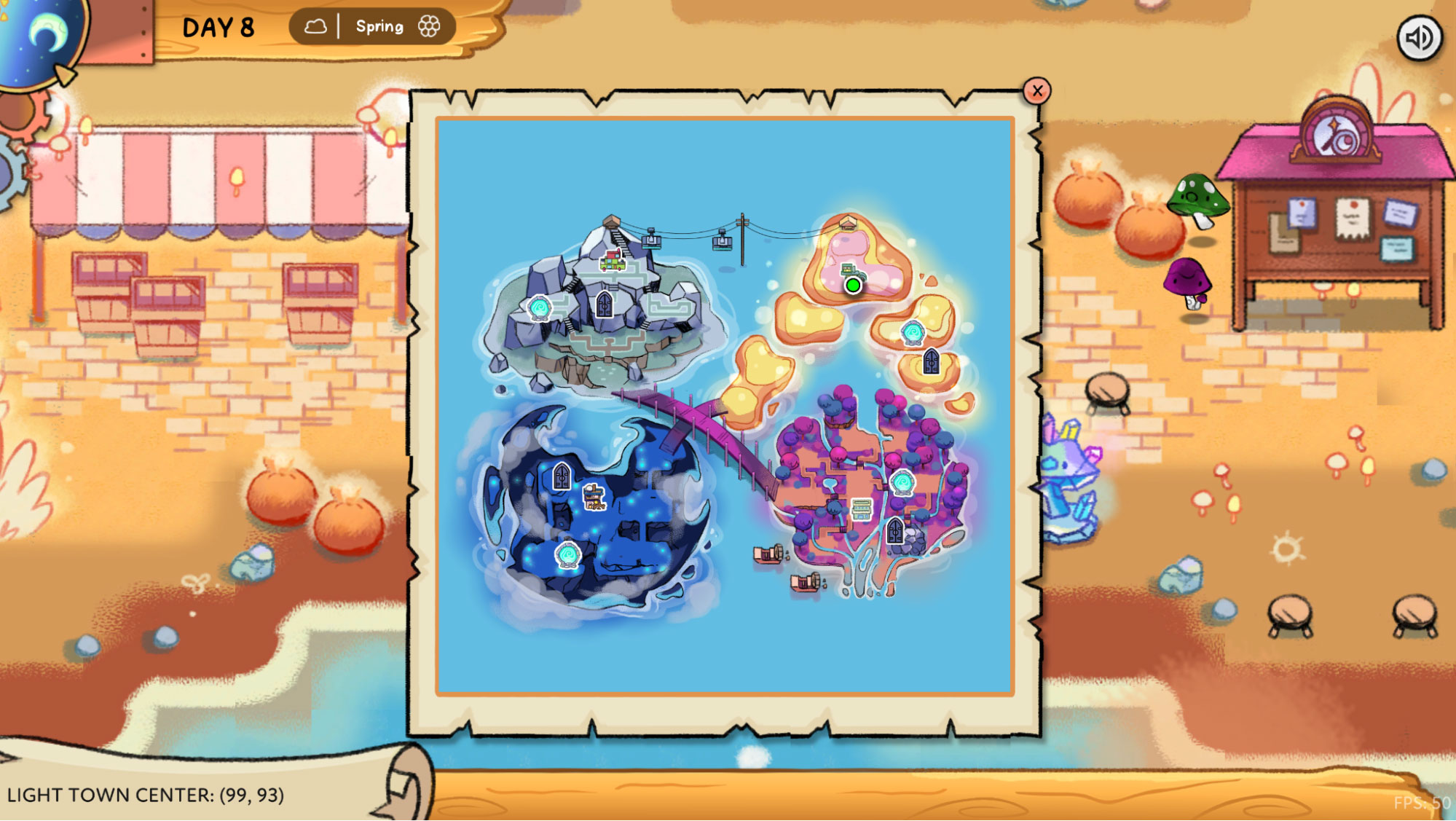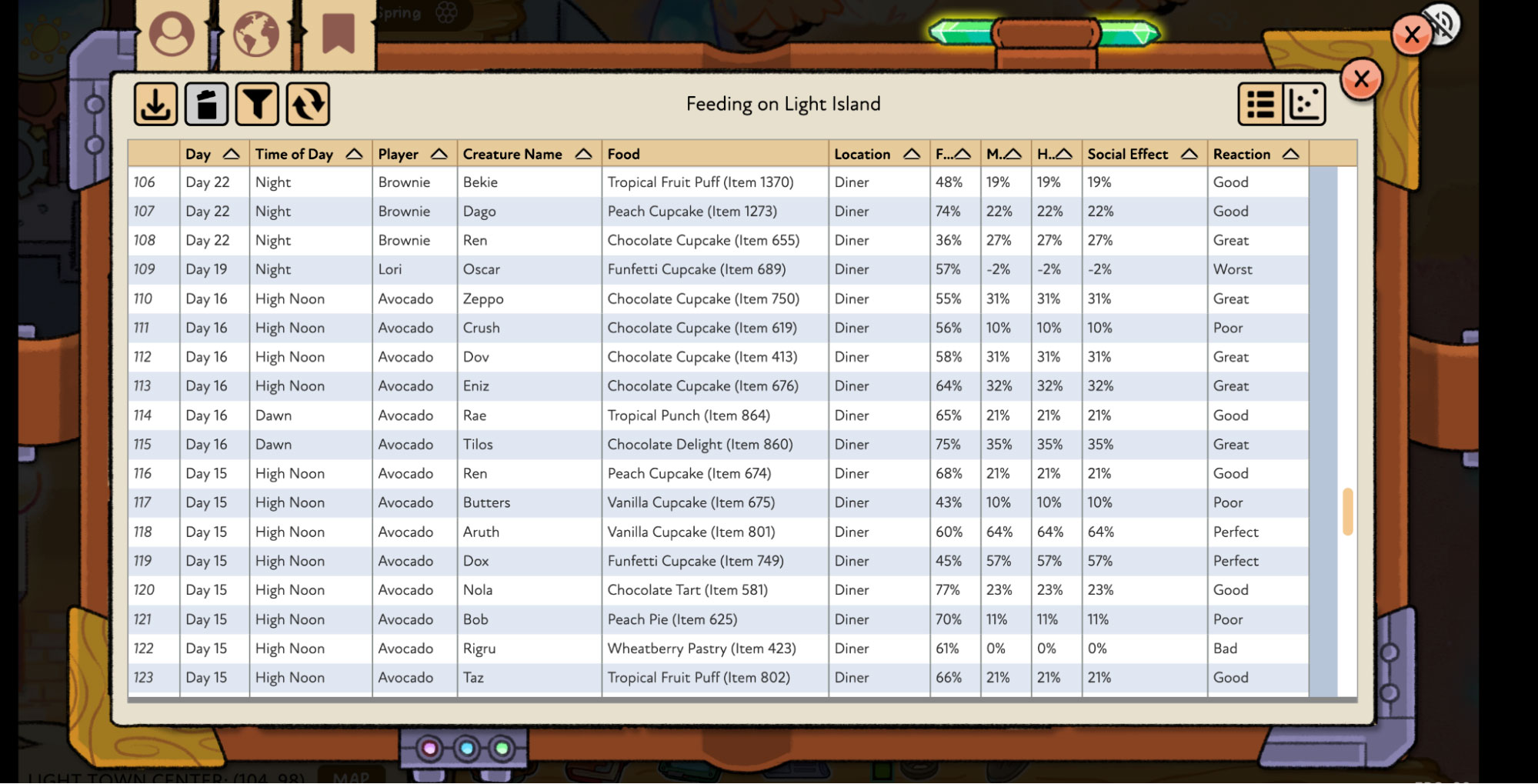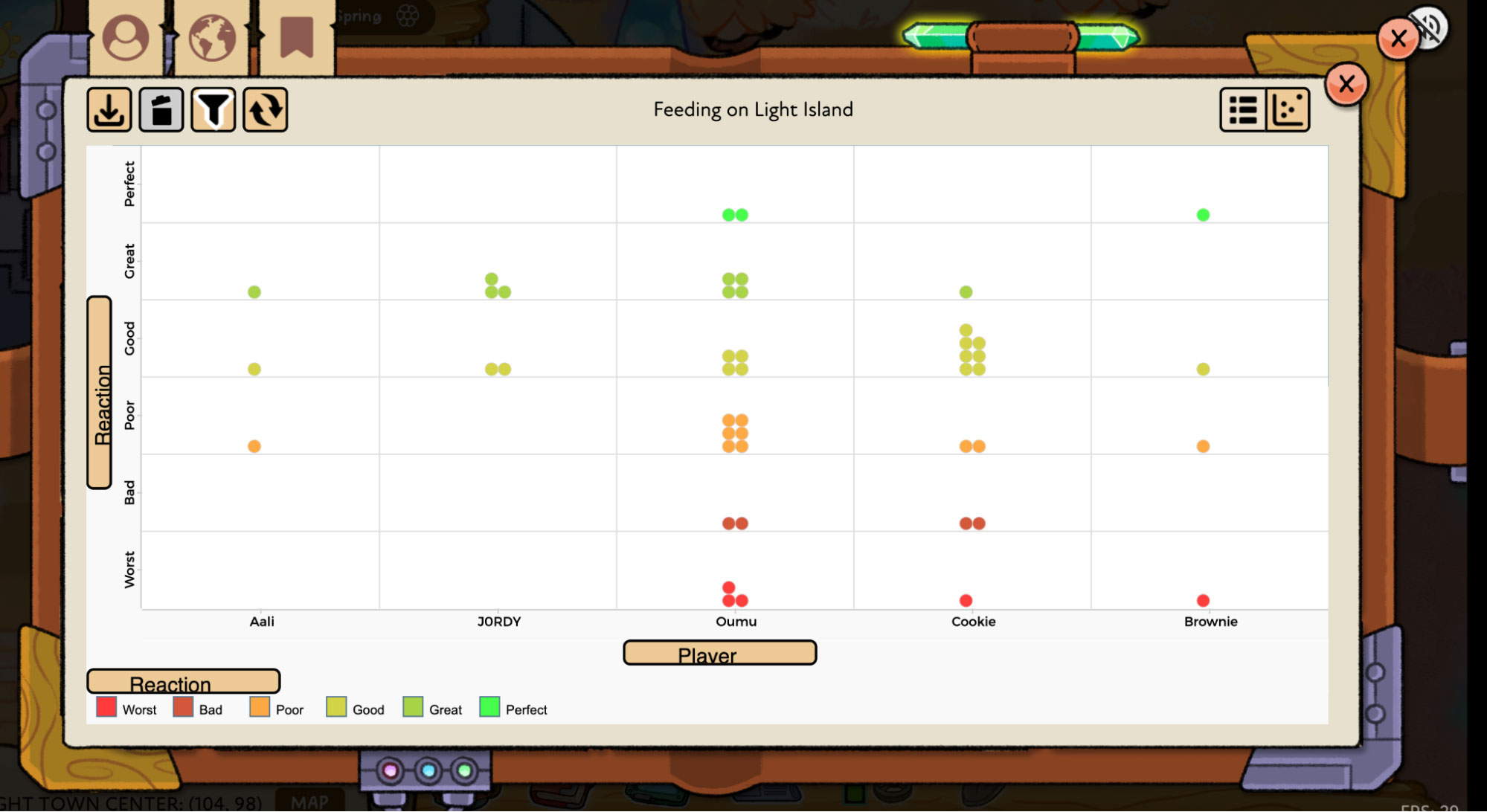Update: The Data Science Learning for Middle School-aged Girls in Informal Gaming Clubs project was one of over 1,000 grants terminated by the National Science Foundation in April 2025.
In the Isles of Ilkmaar, a fictional multiplayer game featuring an archipelago of diverse and magical biomes, middle school players are both data creators and data scientists. Our goal in the National Science Foundation-funded Isles of Ilkmaar project is to spark interest in data science among middle school students.

A map of the Isles of Ilkmaar, showing the four islands in the archipelago.
As data creators, players generate data in the course of gameplay as they explore the islands, befriend creatures, brew potions, and more. As data scientists, players access and analyze the data they and their cohort create in order to make game decisions. This dual identity creates powerful “aha” moments when students realize they’re simultaneously creating and analyzing data—a perspective shift that’s difficult to achieve in traditional education but mirrors authentic data science practices in the real world.
By “unblackboxing” data science—making its processes transparent and hands-on—we hope to make the field more accessible and engaging to young people, fostering interest, building confidence, and cultivating a deeper understanding of data science practices, empowering them to see themselves as capable data scientists.
Players start with game-centered goals such as befriending creatures or making potions and foods. They gradually connect these experiences to real-world challenges—tracking the causes of sickness outbreaks, finding effective treatments, and making evidence-based decisions using data they’ve collected.
Data as a core game mechanic
Unlike typical educational games, data collection in the Isles of Ilkmaar is seamlessly integrated into gameplay. This means that gathering and analyzing information isn’t a separate activity but a natural part of exploring the world and achieving goals. Player actions generate valuable data, stored in tables embedded directly within the game. Students can plot, filter, and merge data for problem-solving and sensemaking—mirroring real-world data workflows.


Two different views of data collected in a game player’s data journal.
For example, when attempting to befriend creatures, players examine historical data to understand creature preferences. Do the mushrooms spend more time resting or playing? What kinds of snacks are preferred by trees? Or, to determine which remedies work for specific creatures and illnesses, players analyze treatment results in order to optimize their approach to help as many creatures as possible.
The Isles of Ilkmaar naturally scaffolds students’ data science journey, making it a particularly powerful educational tool.
- Personal Data: Students begin with their own gameplay data—simple, familiar, and personally meaningful.
- World Data: They progress to exploring data about the game world itself—ecosystem health, creature populations, and island resources.
- Collaborative Data: Finally, they engage with data created by other players, combining datasets to address complex challenges.
This progression mirrors how real data scientists develop expertise, providing an organic learning pathway that builds confidence as students tackle increasingly complex data challenges.
Supporting core data science learning objectives
Along the way, Isles of Ilkmaar directly supports key data science curriculum objectives:
- Data Collection & Organization: Students practice organizing information in tables, understanding variables, and recognizing how data points connect to real events.
- Data Analysis & Interpretation: Students develop skills in filtering data, identifying patterns, and drawing evidence-based conclusions—core math and science standards in middle school curricula.
- Data Visualization: Students get hands-on experience with different ways to represent data (tables, graphs, maps) and how to choose appropriate visualizations for specific questions.
- Statistical Thinking: Students encounter concepts like variability, trends, and outliers in contextual, meaningful ways that deepen their statistical understanding.
These curriculum connections aren’t merely theoretical—they’re embedded in engaging gameplay that students find genuinely compelling. When students analyze creature treatment data to determine which potions work best, they’re practicing the exact same skills outlined in curricular learning standards but in a context where the purpose is clear and motivating.
Afterschool club
We recently worked with a teacher who started an afterschool club for 14 students interested in video games. The club met once weekly for two-hour sessions, with students all playing together on Chromebooks. Our preliminary observations are encouraging.
- Engaged Exploration: Students enthusiastically explored the virtual islands, with some continuing to play outside of club hours because they were so invested in the game world.
- Multiple Data Interactions: Students made use of different data sources available in the game—checking creature stats, reviewing past interactions, consulting treatment records in the hospital, and examining food preferences.
- Purposeful Data Use: Students used data tables for various practical purposes—keeping track of resources, looking up information about creatures, identifying patterns in creature behavior, and seeking clues to solve in-game challenges.
- Collaborative Problem-Solving: When facing challenges such as treating sick creatures in the hospital, students would often share their findings with others, pointing out useful data they had discovered.
What stood out most was how seamlessly students incorporated data use into their gameplay. Rather than approaching data as an abstract learning exercise, they engaged with it as a natural tool to accomplish goals they cared about.
Play the game!
The Isles of Ilkmaar is designed as an open-world sandbox rather than following a linear narrative, allowing teachers to adapt it to different educational goals and contexts. This flexibility makes it a versatile resource for educators looking to incorporate authentic data science practices into their teaching. The game can support your teaching goals while providing students with valuable skills for our increasingly data-rich world.
If you’re interested in using Isles of Ilkmaar with your middle school students to introduce data literacy in an engaging context, provide hands-on practice with data collection and analysis, connect abstract math and science standards to meaningful applications, or offer students experience with collaborative data practices used by real-world data scientists, we can provide a game world for your classroom or club.
To learn more or request access to the game for your classroom, please contact us at ilkmaar@concord.org.